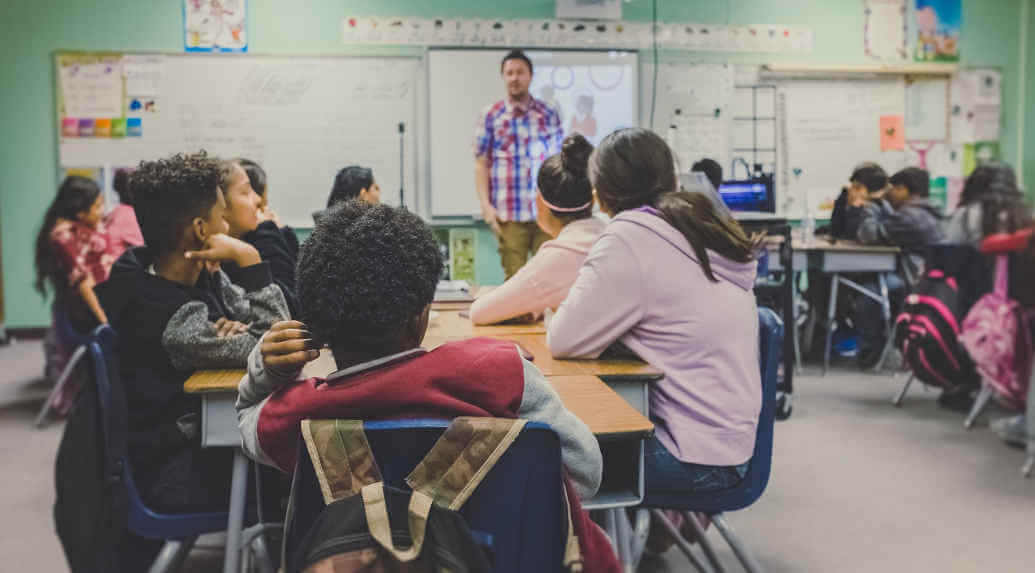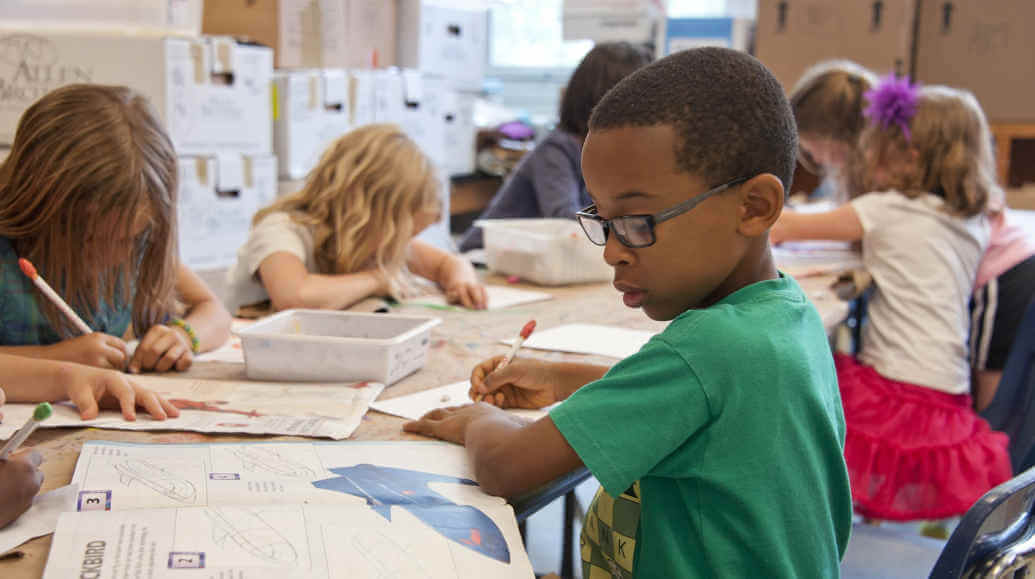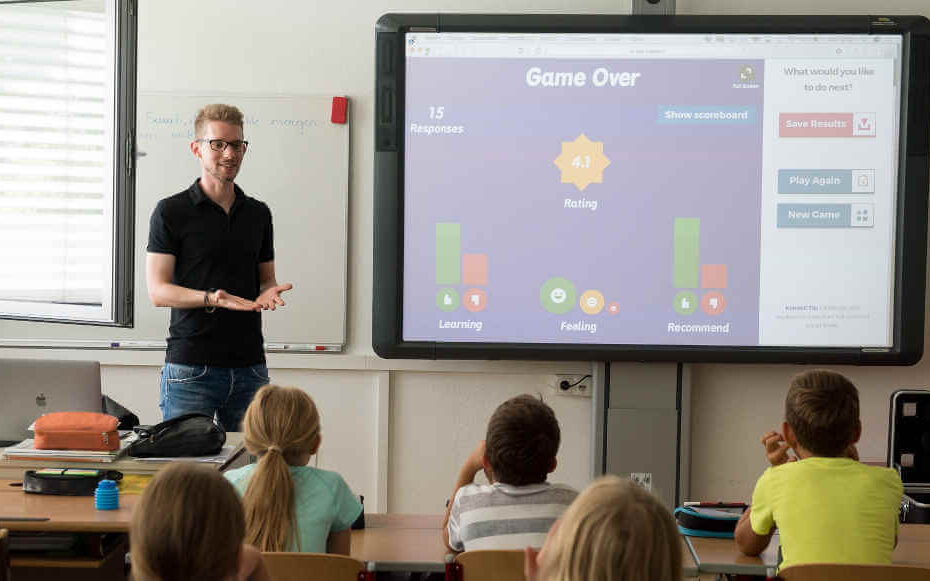Tutoring for elementary students can be a valuable support for children who have difficulties in certain subjects. Through individual attention and targeted support, a tutor can help the child improve their performance in these subjects and boost their self-esteem and confidence. In this blog post, we will look into the topic of tutoring for elementary students to find out if and to what extent it is useful.
Is tutoring useful in elementary school?
Elementary school tutoring can be a useful tool for elementary students who are struggling with certain concepts or subjects. It allows children to receive individual attention and support in an environment that is tailored to their needs and level of achievement. This can help build confidence, improve their understanding of the subject, and develop better study habits.
When considering whether tutoring might be beneficial for an elementary school student, it is important to consider the individual needs of the child. For some children, just regular contact with a tutor can provide the motivation they need to focus on learning. Other children may benefit from one-on-one tutoring that focuses specifically on the areas in which they are struggling. Either way, regular sessions with a tutor can help foster a positive attitude toward learning and help children become more successful in elementary school.
What is the benefit of tutoring elementary students?
The main purpose of tutoring elementary students is to provide individualized support to students who struggle with certain concepts or subjects. Not only can this help improve their academic performance and understanding of the subject, but it can also improve their attitude toward learning in general. Tutoring provides students with access to personalized attention from an experienced teacher who can tailor instruction to the individual needs of the elementary student.
In addition to improving academic performance, tutoring can also help students develop other important skills such as communication, problem solving, and critical thinking. These are all invaluable tools for success later in life, and tutoring can help them acquire them at a young age. These skills are especially important for elementary school students, as children are just beginning to learn and interact with others.
Teachers who are tutoring elementary students can also provide opportunities for students to explore new ideas and concepts that they might not otherwise have had access to due to limited resources or lack of experience. This can open students’ minds to other possibilities and expand their horizons beyond what they are taught in elementary school. These formative experiences create a solid foundation for the future and allow children to learn priceless life lessons that will stay with them forever.
Therefore, tutoring elementary students is not only a way for students to get better grades, but also a way to help them become well-rounded individuals who have important skills for lifelong success inside and outside the classroom.
Tips and advice on how to tutor elementary students

As a tutor of elementary students, there are some tips and advice that should be followed to ensure a successful and positive experience for the student. One of the most important aspects is the use of illustrative material and practice examples to simplify and illustrate the learning for the student.
Tutors should encourage the child to ask questions and solve problems on their own. Regular communication with the student’s parents and teachers is also crucial to discuss progress and challenges and find appropriate solutions. In addition, tutoring elementary students should also encourage and support the student’s self-esteem and confidence.
Tutoring tips for elementary students:
1) Use of illustrative material and practical examples
One of the most important tips when tutoring elementary students is to use illustrative material and practical examples. This can help simplify and illustrate learning for the student, making it easier to absorb and process new information. Diagrams, graphs, pictures, and other visual aids are very helpful in this regard and can help the student better understand complex relationships.
Practical examples such as projects, experiments and role plays can also help to put what is learned into a real-life context and arouse the student’s interest and motivation. A well-planned and thought-out lesson with visual material and practical examples can increase learning motivation and understanding for an elementary school student.
2) Encourage the student to ask questions and solve problems on their own
The most effective way for a tutor to encourage students to ask questions and solve problems on their own is to create a learning environment that encourages open dialogue and exploration. This can be accomplished by giving students frequent opportunities to test and explore their own ideas. In addition, tutors should strive to create an atmosphere of curiosity in which children feel comfortable asking questions.
When a tutor leads a lesson with an elementary school student, the importance of independence in problem solving and decision making should be emphasized. In doing so, the tutor should first explain the importance of questioning one’s own work and that of others in order to arrive at better solutions. The tutor can provide real-life examples or project-based activities that require students to apply their knowledge and skills independently. Through interactive exercises like these, students can gain confidence in themselves while exploring new ideas and developing critical thinking skills.
In addition, it is important for the tutor to remember that some students may need additional support when it comes to solving difficult problems or assignments. Therefore, the tutor should always be prepared to provide guidance and feedback when needed, but also avoid completely taking over the lesson. Providing support can help build trust between teacher and student, while giving the student responsibility for finding their own answers. Ultimately, this balance helps foster a positive attitude toward learning while teaching valuable lessons about problem solving in elementary school.
3) Maintain regular communication with parents and teachers about progress and challenges
Regular communication with parents and teachers about progress and challenges is essential for successful tutoring in elementary school. It is important to work with parents because parents can have valuable insight into the student’s learning needs as well as expectations of the tutor. Through open and frequent communication, tutors can work with parents to develop an effective plan that is tailored to the individual needs of the elementary student.
For example, the tutor should make an effort to report on their students’ progress at least twice a month. This provides both the parent and the teacher with timely information about what has been learned and what still needs to be done. It also gives the tutor the opportunity to provide feedback or offer additional resources that can help the student make further progress.
Finally, it is important for the tutor to remember that open communication allows for better cooperation between all parties involved in the elementary student’s education. Regular parent-teacher meetings give all parties the opportunity to learn what progress has been made without feeling left out. Information gathered in this way can inform how to best adjust instructional strategies or resources to help the student reach academic goals more quickly and efficiently.
4) Promote a positive attitude towards learning

Fostering a positive attitude towards learning is of great importance when you are tutoring elementary students, as a positive attitude can help keep the student motivated and interested in learning. It is important to emphasize the student’s strengths and help them accept and overcome their weaknesses. Creating a positive and supportive learning environment and encouraging them to accept challenges is very important in this regard.
5) Support the student’s self-esteem and self-confidence
It is important to support the elementary student’s self-esteem and confidence by making them feel successful and that their efforts and progress are valued. It is also important to encourage them to express their opinions and thoughts so that they feels safe and heard.
6) Open students’ minds to new ideas, concepts, and possibilities
In order to open the minds of elementary students, it is important to present new ideas, concepts, and opportunities and to allow them to apply and expand their knowledge and skills in real-world contexts. It is also important to give them the opportunity to explore and nurture their creative abilities and interests in order to expand the student’s cognitive abilities.
Conclusion: Summary of the main arguments
Overall, tutoring elementary students is an invaluable experience for both the tutor and the student. It is important for the tutor to remember that open and frequent communication with parents and teachers is important in order to best support and encourage the student.
To help teachers provide the best possible student experience, we recommend using tutoring services for elementary students like Planubo. Planubo offers a variety of tools to organize and optimize tutoring elementary students. It includes extensive features to facilitate the management of tutoring and also the possibility of communication between tutors, parents and students. With Planubo, tutors can track student performance and target weaknesses to maximize learning progress.
Related Article: 10 Tips on How to Get the Most Out of Your Tutoring Session



